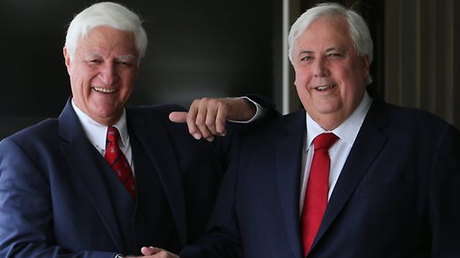
One of Kevin Rudd’s first comments on becoming Prime Minister (again) was an appeal to young people to get more engaged in politics. Andrea Carson’s article on this site a couple of weeks ago pointed to how much the political communication environment has changed over the past few years.
Mr Rudd’s tactic of trying to engage young people through social media is clearly built on the belief that a different communication strategy is needed for the young. This follows the belief that the young are increasingly turning their backs on the conventional media.
But exactly how are young people consuming news?
In order to get a handle on this Dr Denis Muller from the Centre for Advancing Journalism at the University of Melbourne and I wrote a poll commissioned by the Centre which shows exactly how different young people’s engagement with the media is from that of older people.
A few things stood out.
The lack of regular engagement with conventional media is striking. Only 22% of young people watch political news on television everyday. This is compared to 60% of those aged 45 and over. Young people were half as likely to have listened to political news on the radio as older people. Young people were only as likely as those aged 60 and over to have read political content of a newspaper online everyday; this despite young people’s technological sophistication as compared to older people.
The picture changes for seeking out political content online. Young people were more likely than any other age group to have gone to the Federal Parliament website, a party, candidate or campaign site, the Australian Electoral Commission site and to have watched videos online with political content.
Young people are also more activist in terms of their online political engagement. Young people were more likely than older people to have posted political comments online, forwarded political content to others online, signed an online petition and joined a political forum or discussion.
We might call these latter forms of activity expressive ones in which young people feel like they are taking part in participatory and more engaging forms of political engagement.
The old model in which large media proprietors had complete control over the means of production and a captive audience has clearly ended. Our data show that young people are at the forefront of this shift. Young people today are anything but captive.
What exactly are the consequences of this shift away from conventional media? The short answer is we don’t know but the figures seem to spell bad news for traditional news outlets. Indeed, young people have the lowest level of confidence in the press of any age group.
What we do know however is that young people’s media use is changing, and in ways that will not always have positive consequences. Democracy requires an engaged citizenry but it also relies on political reporting and investigative journalism funded by traditional news agencies of the type that seems more and more difficult to do in an age of constant distraction.
Young people are at the center of these dramatic shifts and exactly what the long-term consequences of this are will affect the quality of our democracy in profound ways.




